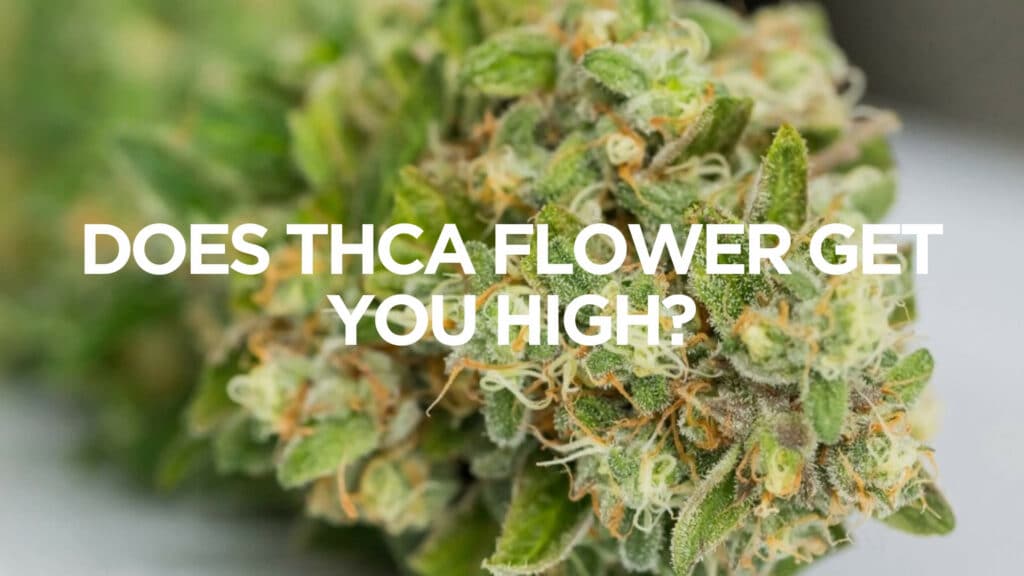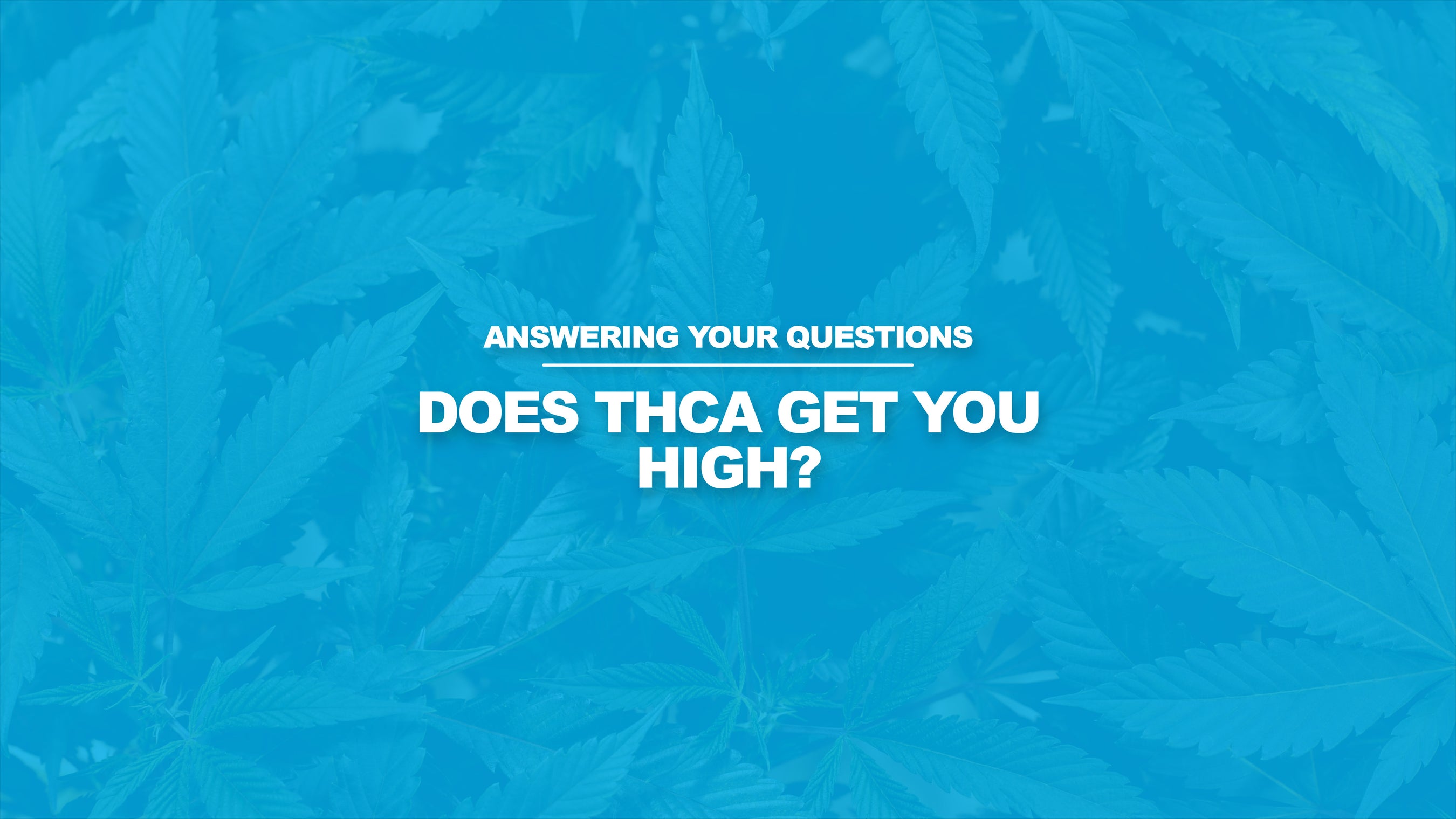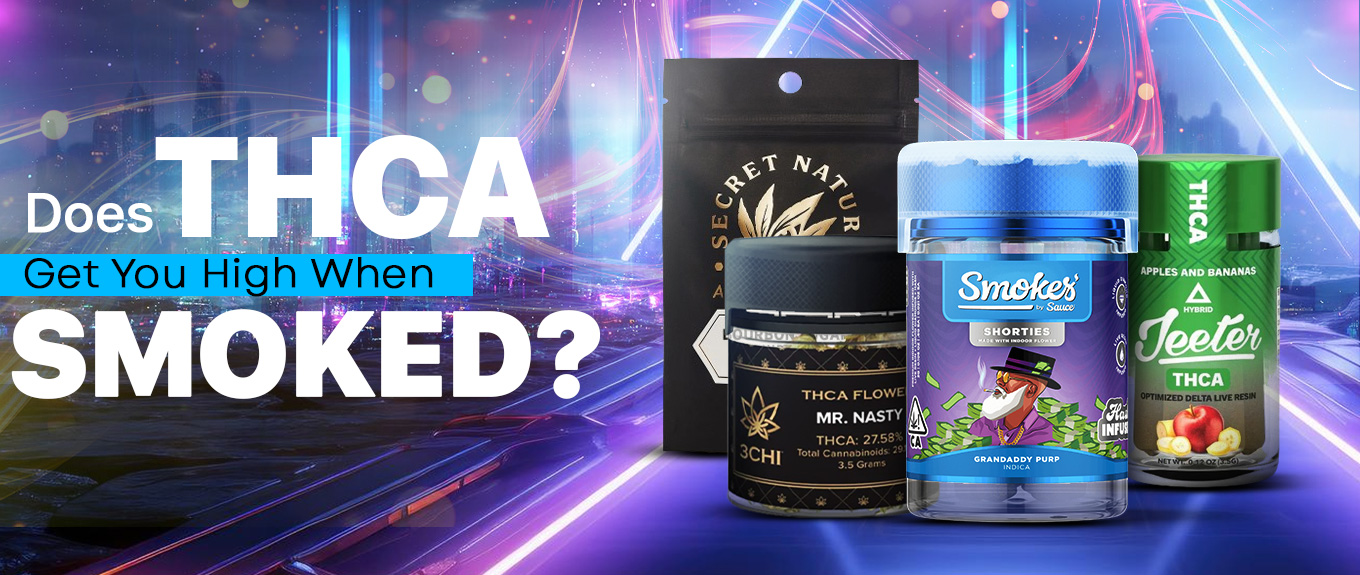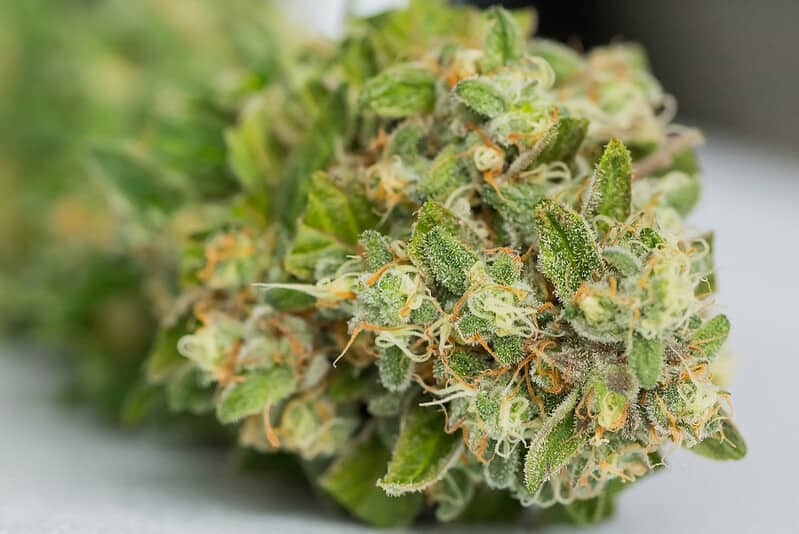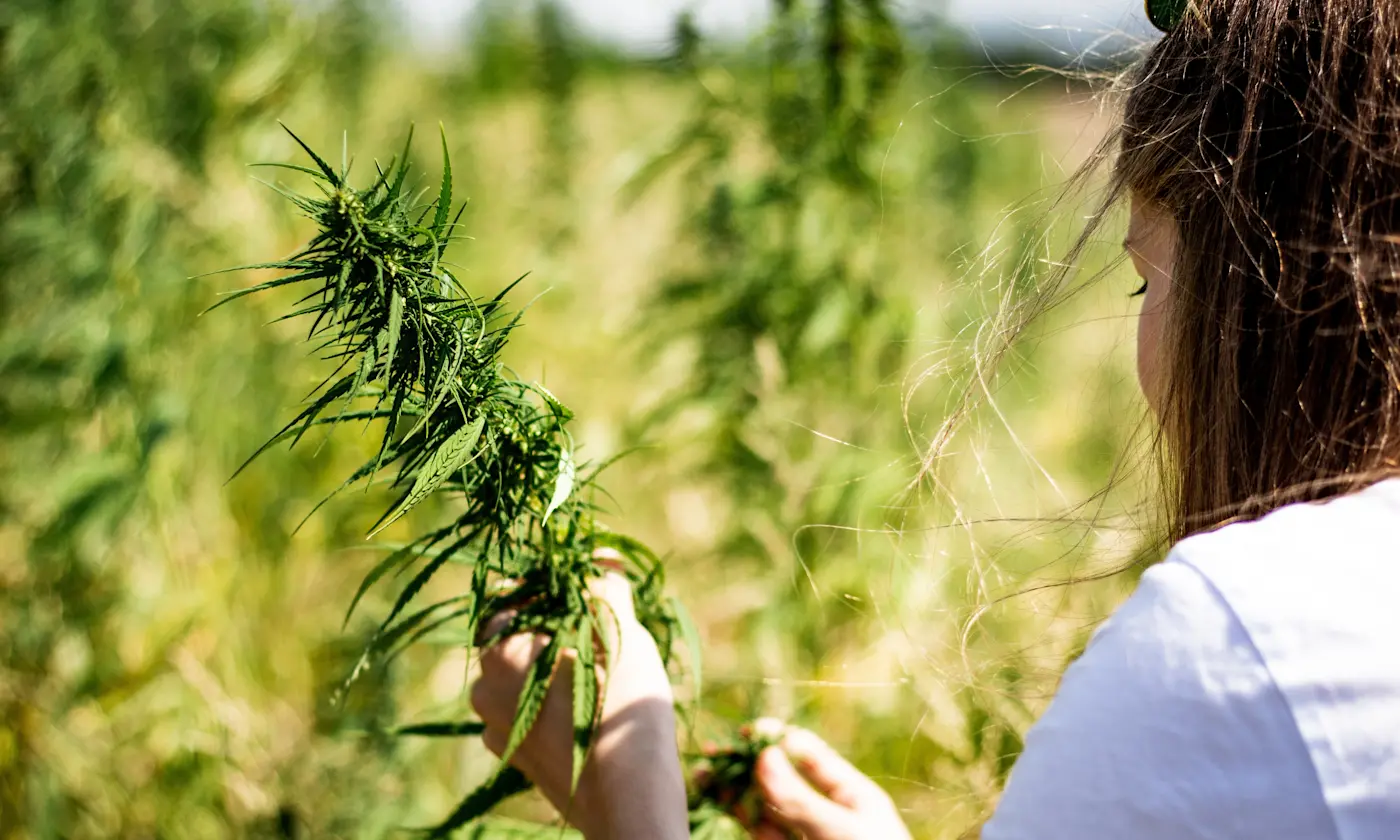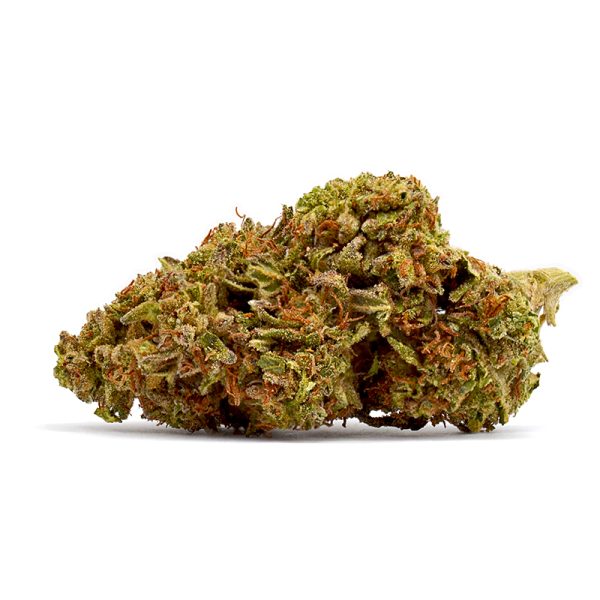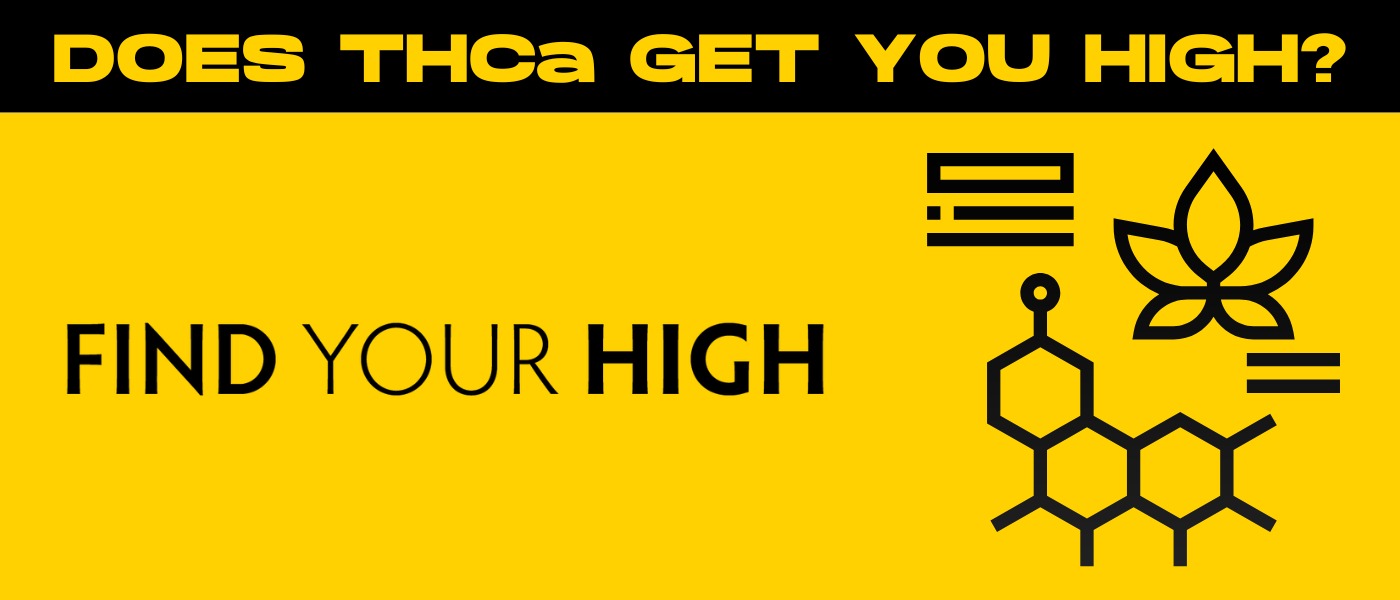Does Thca Flower Get You High If You Smoke It

Imagine the sun-drenched fields of Oregon, a gentle breeze rustling through rows of verdant cannabis plants. The air is thick with the earthy aroma of terpenes, a symphony of scents promising relaxation and well-being. Farmers meticulously inspect their crops, their livelihood dependent on the delicate balance of cannabinoids within these plants. Among these compounds, a particular one has been sparking curiosity and debate: THCA.
The central question swirling around THCA flower is straightforward: Does smoking it get you high? The answer, however, is a bit more nuanced than a simple yes or no. While THCA in its raw form is non-intoxicating, the act of smoking it triggers a chemical transformation that unlocks its psychoactive potential.
Understanding THCA: The Precursor to THC
To understand the effects of smoking THCA flower, it's crucial to grasp what THCA is and how it relates to THC, the cannabinoid responsible for the intoxicating effects of cannabis. THCA, or tetrahydrocannabinolic acid, is the acidic precursor to THC. It's abundant in raw, undried cannabis plants.
In its natural state, THCA doesn't bind effectively to the CB1 receptors in our brain, the receptors primarily responsible for the psychoactive effects. This is why consuming raw cannabis, like in a smoothie, won't typically produce a "high." The magic, or perhaps the chemistry, happens when heat is applied.
Decarboxylation: Unlocking the Psychoactive Potential
The process of heating cannabis, whether through smoking, vaping, or baking, is called decarboxylation. Decarboxylation removes a carboxyl group from the THCA molecule, converting it into THC. This conversion is essential for THC to effectively bind to CB1 receptors and produce its characteristic effects.
Think of it like baking a cake. The raw ingredients, on their own, don't resemble the final product. But when heat is applied, a transformation occurs, and a delicious, satisfying cake emerges. Similarly, decarboxylation transforms THCA into the psychoactive compound THC.
The Effects of Smoking THCA Flower
When you smoke THCA flower, you're essentially triggering this decarboxylation process instantaneously. The heat from the flame converts the THCA into THC, which is then inhaled into your lungs and rapidly absorbed into the bloodstream. This is why smoking THCA flower will indeed get you high.
The intensity of the high depends on several factors, including the THCA content of the flower, the efficiency of the decarboxylation process, and the individual's tolerance. Flowers with higher THCA levels will generally produce a more potent effect.
It's also important to consider the other cannabinoids and terpenes present in the flower. These compounds can interact with THC, modulating its effects and contributing to the overall experience, a phenomenon known as the entourage effect.
Legality and THCA Flower
The legality of THCA flower is a complex and evolving issue. Under the 2018 Farm Bill, hemp-derived products containing less than 0.3% Delta-9 THC are federally legal. However, the legal status of THCA flower often hinges on how it's interpreted under state and local laws.
Some argue that because THCA itself is non-psychoactive, THCA flower should be legal as long as it meets the Delta-9 THC threshold. Others argue that the potential for decarboxylation and conversion to THC makes it subject to the same regulations as cannabis. It is crucial to consult your local and state laws.
This ambiguity has created a gray area in the market, with THCA flower being sold in some areas where cannabis remains illegal. However, this legal landscape is constantly shifting, and it's essential to stay informed about the regulations in your specific location.
Consumer Considerations and Responsible Use
For those considering using THCA flower, it's crucial to approach it with awareness and responsibility. Start with small amounts to gauge your tolerance and understand how it affects you. Remember that the effects can vary depending on the strain, the method of consumption, and your individual physiology.
Be mindful of the potential risks associated with cannabis use, including anxiety, paranoia, and impaired cognitive function. Avoid driving or operating heavy machinery while under the influence. If you have any underlying health conditions or are taking medications, consult with a healthcare professional before using THCA flower.
Furthermore, prioritize purchasing THCA flower from reputable sources that provide lab testing results. These results should confirm the THCA content, Delta-9 THC levels, and the presence of any contaminants, ensuring you're consuming a safe and high-quality product.
The Future of THCA and Cannabis Research
The ongoing exploration of THCA and other cannabinoids holds immense potential for unlocking new therapeutic applications. Research into the potential benefits of THCA is still in its early stages, but some studies suggest it may possess anti-inflammatory, neuroprotective, and anti-cancer properties.
As our understanding of the cannabis plant deepens, we may discover even more about the complex interplay of cannabinoids and terpenes. This knowledge could lead to the development of targeted therapies for a wide range of conditions, offering new hope for those seeking natural and effective treatments.
Continued research is essential for navigating the complexities of cannabis, its legality, and its potential benefits. Only through rigorous scientific investigation can we fully unlock the secrets of this fascinating plant and harness its power for the betterment of human health.
Conclusion
So, does smoking THCA flower get you high? The answer is a resounding yes, thanks to the transformative process of decarboxylation. The heat converts the non-intoxicating THCA into psychoactive THC.
As the cannabis landscape continues to evolve, understanding the nuances of cannabinoids like THCA becomes increasingly important. Responsible consumption, informed choices, and continued research are key to navigating this complex and promising field.
Ultimately, the journey with THCA flower, like any exploration into the world of cannabis, should be approached with curiosity, respect, and a commitment to understanding its potential effects and implications. Remember to always prioritize safety and responsible use. Happy exploring!



